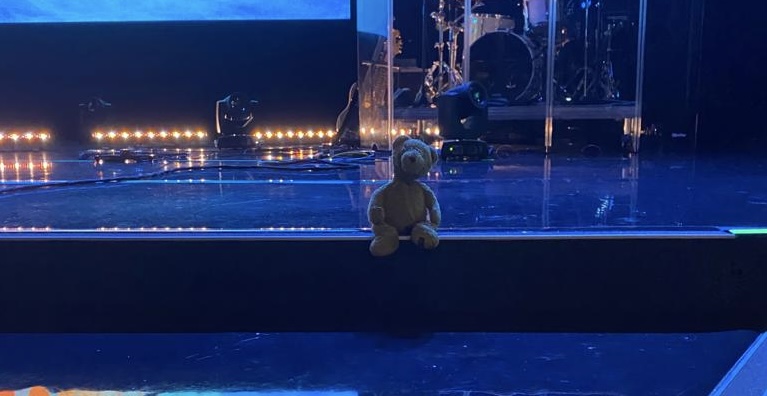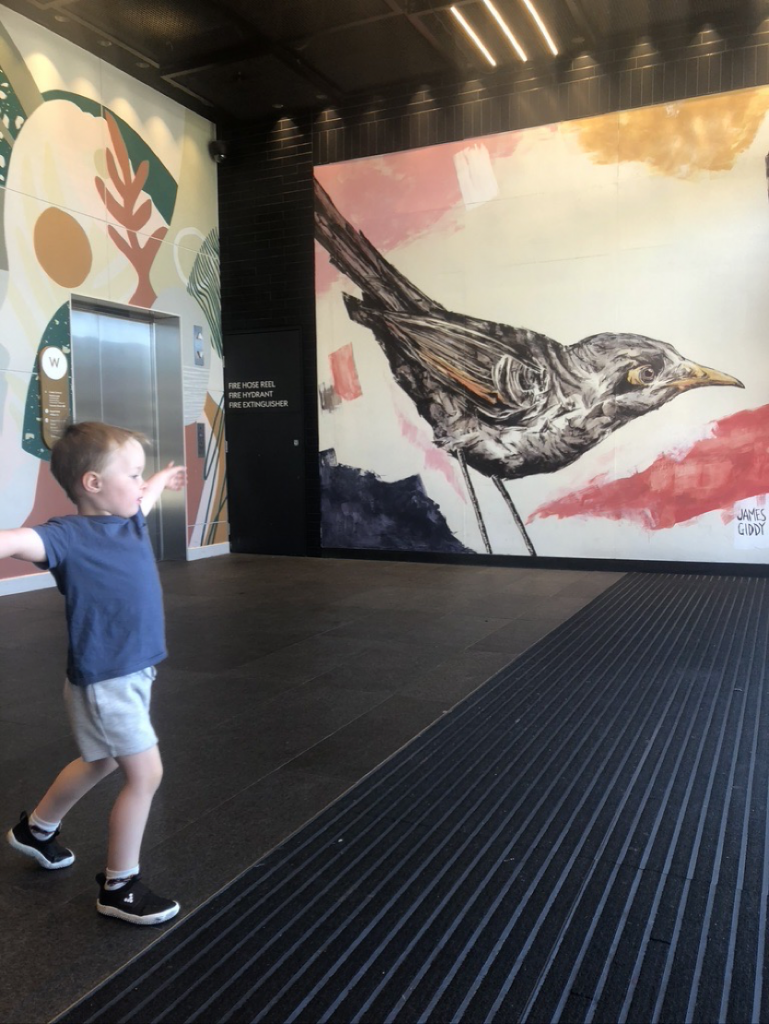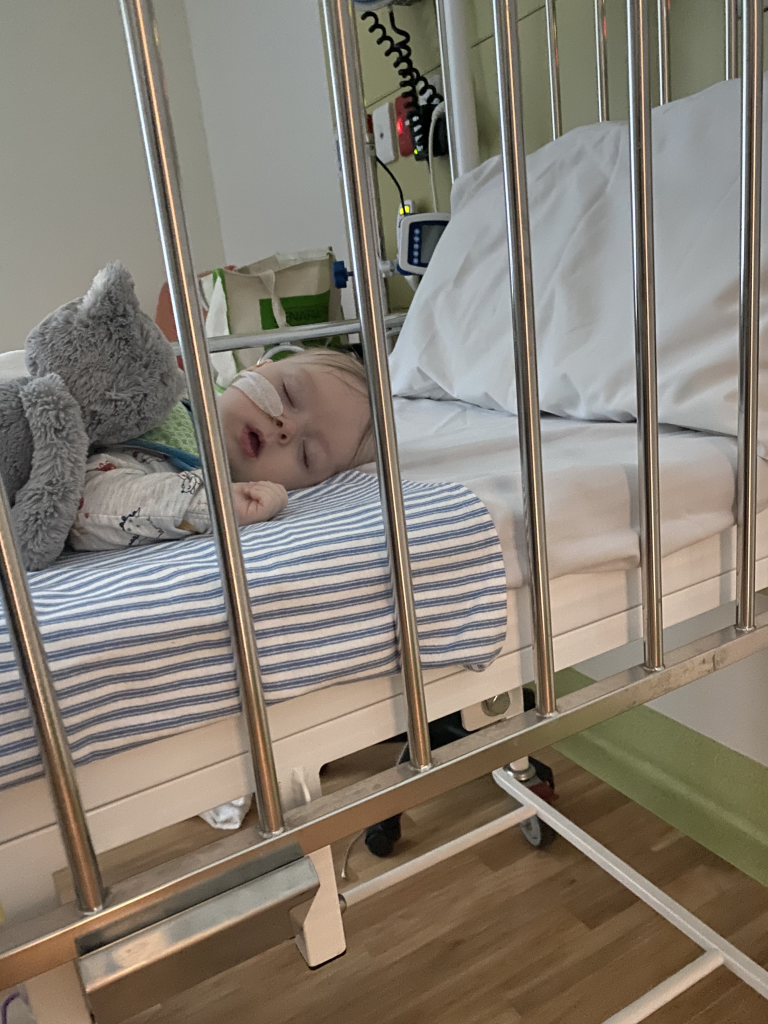Then, suddenly again, Christopher Robin, who was still looking at the world with his chin in his hands, called out “Pooh!”
“Yes?” said Pooh.
“When I’m — when — Pooh!”
“Yes, Christopher Robin?”
“I’m not going to do Nothing any more.”
“Never again?”
“Well, not so much. They don’t let you.” Pooh waited for him to go on, but he was silent again.
“Yes, Christopher Robin?” said Pooh helpfully.
“Pooh, when I’m — you know — when I’m not doing Nothing, will you come up here sometimes?”
“Just me?”
“Yes, Pooh.”
“Will you be here too?”
“Yes, Pooh, I will be really. I promise I will be, Pooh.”
“That’s good,” said Pooh.
“Pooh, promise you won’t forget about me, ever. Not even when I’m a hundred.” Pooh thought for a little.
“How old shall I be then?”
“Ninety-nine.”
Pooh nodded.
“I promise,” he said.Still with his eyes on the world Christopher Robin put out a hand and felt for Pooh’s paw.
“Pooh,” said Christopher Robin earnestly, “if I — if I’m not quite —” he stopped and tried again — “Pooh whatever happens, you will understand, won’t you?”
“Understand what?”
“Oh, nothing.” He laughed and jumped to his feet.
“Come on!”
“Where?” said Pooh.
“Anywhere,” said Christopher Robin.So they went off together. But wherever they go, and whatever happens to them on the way, in that enchanted place on the top of the Forest a little boy and his Bear will always be playing.
The House at Pooh Corner, by A. A. Milne
I first read this beautiful end to a Winnie the Pooh story in Danya Ruttenberg’s fantastic book “Nurture the Wow”. It’s a book that explores parenting from the perspective of Jewish faith, and it was formative for me at one of the hardest points of early parenting, when I felt like I had no time for anything, self care was at all time lows, friendships drifted, and church and faith was something I used to do, and hoped to do again one day, but didn’t have headspace for anymore.
The book as a whole paints a beautiful picture of the mystery of faith, and the wonder of watching new life grow, and the hardships of parenting, and how they are all intertwined.
She quoted the Pooh story to talk about the wonder and play and imagination of childhood, and how soon it’s lost, and that it is a loss, and that we should honour it:
Even if we can’t keep our babies at the age when they’re happily talking to their bear all day — nor, maybe, would we want to — we do have a little power. We can keep the play from being squashed out of their lives. We can make sure they have time to do Nothing. We can guard that jealously for them, and even join them, sometimes, in Pooh Corner, if they’ll let us.
Nurture The Wow, by Danya Ruttenberg
I finished the chapter and closed the book, determined to make that space for play and imagination and Nothing in my kids lives. And presumably got busy again, called back into the demands of a young family.
Later that day, in a quiet moment, a parallel truth dawned on me: it’s not just the kids who lose something when they lose the space for Nothing. Kids get busy with school. And I was neck deep in my own busyness: cooking a meal, cleaning up a toilet training accident, responding to a meltdown, discussing sleep routines and health appointments and trying to still get in enough hours for my job to call it a full day of work. They don’t let you do Nothing any more.
And just as Christopher Robin had the looming sense that he would be so busy – that without the time for imaginative play, he’d lose his closest friend – so I realised how little space I gave to my connection with God.
See one of the beautiful things about the Christian faith I grew up with is the absolute insistence that you can know God, and be known. That there’s not just a spirituality or transcendence on offer, but a relationship.
(Make what you will of the parallels I’m drawing between having an imaginary friendship with a stuffed bear and a relationship with God! 🤣)
Growing up, and through my young adult years, that had been deeply deeply meaningful to me. My relationship with God. A sense of closeness, trust, shared joy, back-and-forth, relationship with the divine everythingness that we called God. The closest relationship in my life was the one with God. And a lot of the richness there came from the quiet times, the times of doing Nothing. Walking out at night and staring up at galaxies. Sitting at home and picking up books from my parents library on faith and history and love. Talking with friends until it was midnight, 2am, 5am, and trying together to sense how God was active in our lives, and how we could tune in more.
And then, life got busy.
And then, almost a decade into a marriage, and several years into hard-mode parenting, I still believed in God, mostly. And I still tried to live in line with the same values, mostly. But I realised how long it had been since I took part in that relationship.
And I started to weep.
I’d forgotten the deepest connection I had known.
And as I wept, I remembered another story, from the movie The Notebook. (Spoiler alert!) An elderly woman suffering from dementia and memory loss is in a nursing home, and a volunteer comes in to read her a story. It’s a love story, and she follows along intently. And only at the climax of the story when she asks what’s going to happen, does she realise that it’s not just a story, it’s her story, and the one reading it is not just a volunteer, it is the love of her life. And she has a few minutes remembering the richness of their love, before the reality of it dissipates again and she’s left wondering who is this stranger she’s with.
It felt like I was having one of those moments. The reality of it, the depth of relationship, the richness of love, came flooding back, and I remembered, and wept. Yes, I remember, I remember you, I remember this.
And the love was still there, intermingled with the grief that I could have forgotten for so long.
And like Christopher Robin asked Pooh, I asked in prayer: Promise you won’t forget about me? Even when I forget about you? Whatever happens, you will understand, won’t you?
And all I felt in response was love, understanding. And the confirmation that God was still there, had never left, and that the relationship was still there too, open for me when I was ready to be open to it.
So if you’re reading this…
… and like me, you have known that love, but when there was no time to do Nothing, it got crowded out by the concerns of life: may you find enough stillness to hear the quiet voice of God again, and when you’re ready, rediscover the richness of that loving connection.
… or if you know the love I’m talking about, and you’re still connected to the source, may you safeguard the quiet moments that nurture that relationship and make it real for you.
… or if you have never known it, may you find it, in the way that resonates with you most. The thing that unites all of us at some level isn’t just an idea or energy or “the universe”, I believe it’s a person. And they are hoping we will perhaps reach out, and perhaps find them, though they’re never really far from any of us. God connects with a thousand people in a thousand different ways. May you notice the small invitations to connect, and have the courage to respond.




